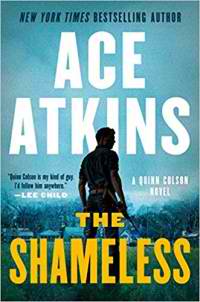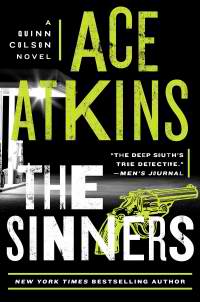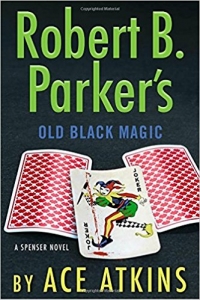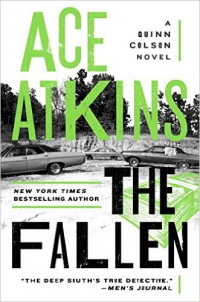The Shameless by Ace Atkins
 Monday, July 8, 2019 at 7:13AM
Monday, July 8, 2019 at 7:13AM 
Published by G.P. Putnam's Sons on July 9, 2019
Brandon Taylor came home from high school, went out deer hunting, and didn’t return. A week later, his body was found with a bullet in the skull. The sheriff of Tibbehah County, Mississippi called it a suicide. Twenty-one years later, a podcasting reporter decides to investigate. The reporter wonders whether Brandon might have been killed by a young Quinn Colson.
Brandon happens to be the boy who took the virginity of Quinn’s new wife. Other sources are telling the reporter that Quinn was jealous of Brandon and that the sheriff, Quinn’s uncle, covered up Quinn’s involvement in Brandon’s death.
Series readers know that Quinn Colson is the current sheriff. Unlike many of the local politicians and other characters in the novel, Quinn is not a redneck homophobic racist. Quinn doesn’t hide behind his religion to conceal his moral faults, unlike politicians who want to build a 60-foot cross to hide the neon lights of the local titty bar. Southern politicians in the Quinn Colson novels are inevitably religious hypocrites, of the sort Roy Moore exemplifies.
In the Colson novels, southern hospitality is a mask that disguises the things nobody in Mississippi wants to talk about: poverty, corruption, bigotry, and the failure to fund schools — a point that Quinn’s sister makes to the reporter. Ace Atkins draws some not-so-subtle parallels between a redneck candidate for governor who relies on the support of white supremacists and a certain president, including the dismissal of attempts to expose the truth as “harassment” and a “witch hunt.” This is not a book that people on the far right are likely to enjoy.
The Shameless makes a deep dive into Quinn’s family history. Much of it, including his relationship with the shady “Uncle Hamp,” has been sketched out in earlier novels. The relationship adds complexity to Quinn’s character. He is loyal to the memory of his uncle (Hamp was a role model who taught Quinn to shoot) but is not blind to the corruption and crime that was allowed to infest the county under Hamp’s watch.
Other family members and friends add color to the story, including Quinn’s mother (perhaps the biggest Elvis fan in Mississippi), his sister Caddy (restoring herself after a troubled past by working to feed and clothe the poor), his friend Boom (whose own drinking problem has worsened since his beating by a man who plays a key role in the story), and his colleague Lillie Virgil, who worked with Quinn until she joined the U.S. Marshals.
Thriller fans generally want good to triumph over evil. Those triumphs are incremental in the Quinn Colson novels, but the reader can cheer for small victories. I enjoy the series because evil is broadly defined to include rednecks who want the South to return to its “traditions,” a code word that includes oppression of everyone who isn’t a straight white male. It will take generations for southern devotion to those abhorrent “traditions” to die, but the Quinn Colson novels provide comfort for those who believe that politicians who fuel prejudice can be overcome, one hypocrite at a time.
The more immediate question is how and why Brandon Taylor died. A team effort finds a satisfying solution to that mystery, but there is more to the story, setting up a continuing plot thread for future novels. Along the way, Atkins delivers entertaining action scenes and gunfights, but the story is centered on characters with personalities that make them seem like real people to fans of the series.
RECOMMENDED


